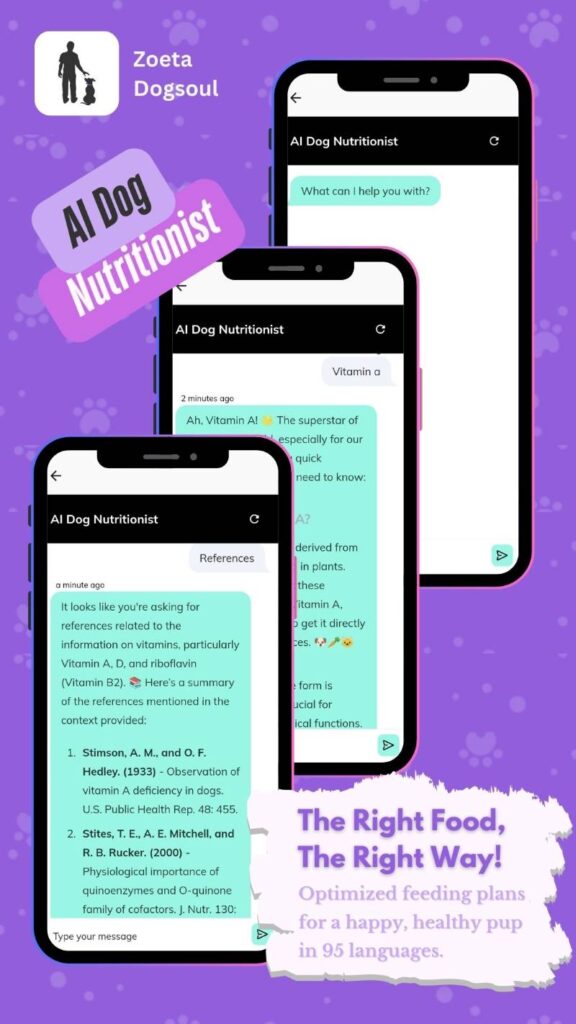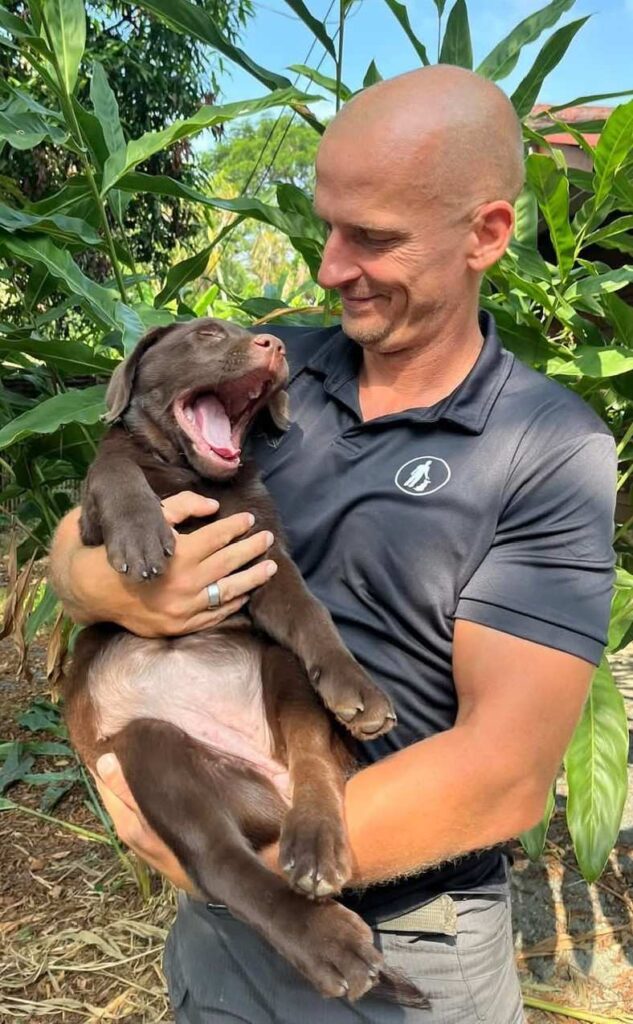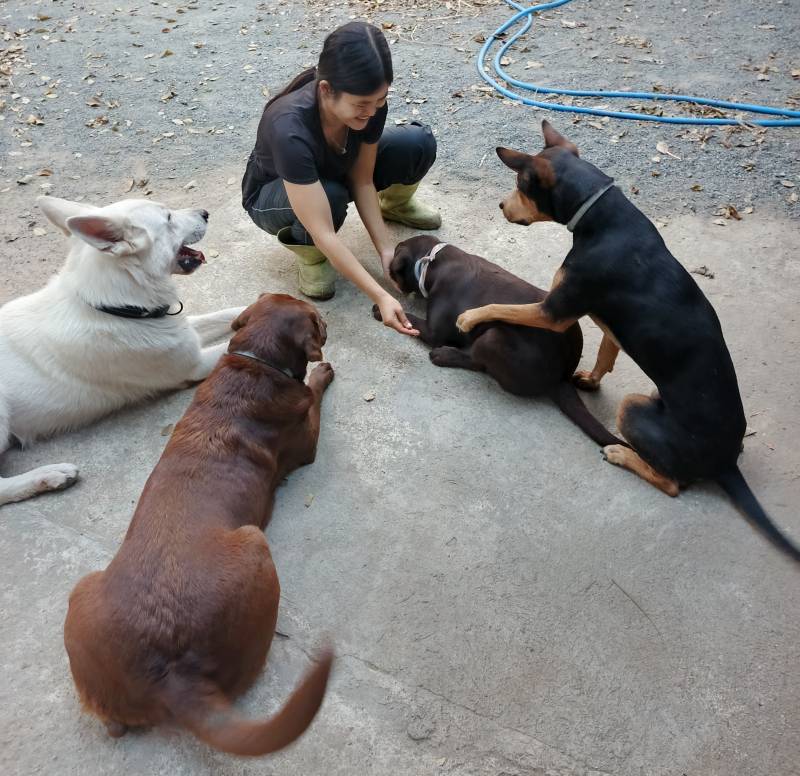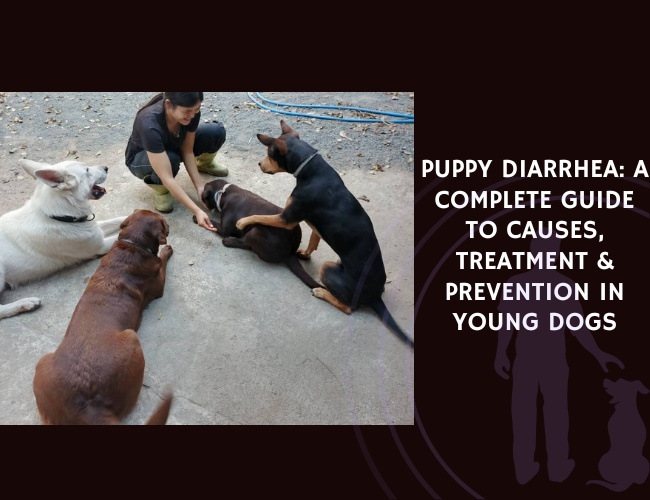Introduction: Understanding Puppy Diarrhea
Why Puppy Diarrhea Is So Common
Diarrhea is one of the most frequent health problems seen in puppies under six months. Their young bodies are still getting used to a new world, which means their digestive systems are particularly sensitive. Sometimes, even small changes can lead to big upset in their tummies. Because puppies are so curious, they often chew or swallow things they shouldn’t, whether it’s a sudden change in food, treats, or even something picked up on a walk. This kind of “dietary indiscretion” is a top cause of tummy troubles in young dogs.
What Makes Puppies More Vulnerable
Puppies are more likely to get diarrhea because their immune systems are still developing. Their gut microbiome—the bacteria that live in their digestive tract—is not mature yet. This means they are not as good at fighting off infections or tolerating new foods. Puppies that are not fully vaccinated or come from environments with lots of dogs, like shelters, are at extra risk for viral and bacterial infections. Serious diseases like canine parvovirus (CPV) can cause severe diarrhea, especially in unvaccinated puppies, and need urgent attention.
A Multifaceted Approach: Prevention and Care
Because so many things can cause diarrhea in puppies, keeping them healthy requires a multifaceted plan. This means paying attention to their nutrition, their stress levels, and their surroundings. Creating a stable routine, providing a consistent diet, and ensuring up-to-date vaccinations are all part of a solid prevention plan. Early action and working closely with your veterinarian can make a big difference if problems do develop.
With a good understanding of why puppies get diarrhea, you’ll be ready to explore what triggers it and how to prevent it. Keeping your puppy’s tummy happy is key for their healthy growth and lifelong wellness! 🐾
Common Causes of Puppy Diarrhea
Dietary Indiscretion
Young puppies are known for their curiosity, which often gets them into trouble—especially when it comes to food. Sudden changes in diet, eating inappropriate items (like socks or sticks), or getting too many treats can overwhelm their digestive systems. Their stomachs simply aren’t ready for these surprises, which can lead to loose stools or frequent diarrhea. Gradual food transitions and limiting treats help reduce this risk, keeping their digestion on track.
Parasitic Infections
Intestinal parasites are another leading cause of diarrhea in puppies. Giardia and roundworms are especially common offenders in dogs under 6 months old. These parasites can enter through contaminated water, soil, or even from their mother. Infections may cause not just diarrhea, but also weight loss, a dull coat, and general discomfort. Regular deworming and good hygiene are essential practices for protecting your puppy’s health.
Viral and Bacterial Infections
When it comes to contagious diseases, viral and bacterial infections are serious concerns. Canine parvovirus (CPV) is particularly dangerous, especially for puppies that are not fully vaccinated. This virus is highly contagious and often fatal if left untreated. Infected puppies may experience severe, bloody diarrhea and rapid dehydration. Early vaccination is, therefore, a must to lower the threat of this devastating illness.
Understanding these common causes is key to taking preventative steps and responding swiftly when a problem arises. With attention to diet, routine parasite control, and timely vaccinations, you can keep your puppy happy and healthy.
Risk Factors: Age, Breed, and Vaccination Status
Age and Immune System Development
Puppies under six months face unique challenges when it comes to diarrhea. Their immune systems are still maturing, which means they can’t fight off infections as well as adult dogs. Alongside this, their gut microbiomes—the helpful bacteria and microbes inside their digestive tracts—are also developing. An immature gut microbiome can make it harder for puppies to digest food or resist harmful bacteria and parasites. Because their bodies are still learning, they’re simply more vulnerable to illness and changes in their surroundings.
Breed Considerations
Not all puppies face the same level of risk. Smaller breeds are often at higher risk for digestive trouble. Their tiny bodies are more sensitive to dehydration and rapid fluid loss, which can happen quickly during bouts of diarrhea. Studies have shown that these breeds might also face more health complications in early life due to their size and specific developmental needs. Being mindful of your puppy’s breed characteristics can help you provide better care and spot problems early.
Vaccination Status and Disease Protection
Vaccination status is a big factor in preventing severe illness. Puppies that have not completed their vaccine series are much more likely to get dangerous viral infections, especially canine parvovirus (CPV). Parvovirus spreads easily and can be deadly, particularly in unvaccinated puppies. Making sure your puppy gets all recommended vaccines on schedule is the best way to protect their health and reduce the risk of severe diarrhea or life-threatening illness.
Understanding these risk factors helps you create a safer, healthier environment for your puppy. Keeping an eye on your puppy’s age, breed-specific needs, and vaccine schedule goes a long way toward building strong digestive and immune systems.
Stress-Related Digestive Issues in Puppies
The Gut-Brain Axis and Puppy Digestion
Puppies are sensitive to their environment, and stress can have a real impact on their digestive health. The gut-brain axis is a two-way communication system between the brain and the gut. In young dogs, this connection is especially strong because their bodies are still developing. Stressful experiences, like a sudden loud noise or a new environment, can trigger signals from the brain that upset the balance of the gut, resulting in diarrhea.
Common Stressors Affecting Puppies
Several everyday situations can make a puppy anxious:
- Moving to a new home
- Traveling or car rides
- Separation from their owner
- Introduction to new people or pets
Even small changes, such as a different feeding schedule, might stress a puppy. These moments of worry or uncertainty can disrupt normal digestion and cause loose stools.
How Stress Triggers Digestive Upset
When puppies feel anxious, their bodies release stress hormones. These hormones can speed up movement in the intestines, making food pass through too quickly for proper absorption. Stress can also disturb the balance of the gut microbiome—the helpful bacteria that support digestion. As a result, even mild stress can lead to stomach upset in young puppies.
Creating a Calmer Environment
Helping your puppy adapt to new experiences with gentle transitions and consistent routines is key. A calm and predictable environment supports digestive health and helps lower the risk of stress-related diarrhea. Consistent training and comfort from their owner can work wonders in making a puppy feel secure 😊.
Next, understanding when a puppy’s digestive upset needs veterinary attention is crucial to keeping them safe and healthy.

When to Seek Veterinary Care
Recognizing Emergency Warning Signs
Puppy diarrhea often clears up quickly, but some situations deserve urgent attention. Severe dehydration is a big red flag. Watch for gums that look dry or sticky, weak energy, sunken eyes, or poor skin elasticity. Lethargy—a puppy that won’t get up to play or seems unusually tired—is another warning sign. Bloody diarrhea, especially if it’s bright red or dark and tarry, indicates something more serious. Persistent vomiting, especially alongside diarrhea, puts puppies at high risk for rapid dehydration.
If your puppy shows any of these symptoms, prompt veterinary care is essential. Puppies’ immune systems are still developing, so even mild illnesses can quickly worsen. In cases like canine parvovirus, early intervention can be a lifesaver, especially since CPV can be fatal in unvaccinated puppies.
Timeline Guidelines for Concern
Typical mild diarrhea from stress or diet changes may last a day. However, if diarrhea continues for more than forty-eight hours, or if your puppy is refusing food or water, it’s time to seek professional help. Trust your instincts—if your puppy seems worse than expected, don’t wait.
The Importance of Early Action
Acting quickly can help prevent complications from dehydration and address the root cause before things get serious. This is especially true for puppies under six months and those who are unvaccinated. Early visits to the veterinarian can make a big difference in recovery and help ensure a happy, healthy puppy. 🩺
Consistent monitoring and fast responses to warning signs set the stage for your puppy’s ongoing digestive health.
Diagnostic Approaches for Puppy Diarrhea
Fecal Examination Techniques
One of the first steps in identifying the cause of diarrhea in puppies is a fecal examination. This test looks for common parasites like Giardia and roundworms that frequently affect young puppies. A veterinarian will use a technique called fecal flotation. This involves mixing a small amount of the puppy’s stool with a special solution and examining it under a microscope. If parasites or their eggs are present, the vet can spot them right away. Catching these invaders early helps guide the appropriate deworming or anti-parasitic treatment, giving your puppy the best chance for quick recovery.
PCR Testing for Pathogen Detection
Polymerase chain reaction (PCR) testing is a more advanced method used to detect viral and bacterial causes of diarrhea. This test can identify dangerous infections such as canine parvovirus (CPV), Campylobacter, or even certain strains of Giardia. PCR testing works by looking for the unique genetic material of specific germs. It’s extremely sensitive and can pick up infections that sometimes hide from basic fecal exams. This is especially important for unvaccinated puppies, as catching viruses like CPV early can be lifesaving.
Additional Diagnostics for Chronic or Severe Cases
Sometimes, diarrhea persists or worsens even after the first round of tests and treatments. In these situations, more in-depth diagnostics may be needed. Your vet could suggest blood tests to check for signs of wider infection or dehydration, as well as advanced imaging to rule out blockages or congenital problems. Exploring these options ensures that chronic or severe diarrhea doesn’t go unchecked, helping your puppy bounce back to normal life quickly.
Investing in the right diagnostic approach supports tailored treatment, keeping puppies happy and on the path to robust growth and development. 🩺
Upset. Understand. Prevent.
Puppy diarrhea isn’t just messy—it’s a message.
A young digestive system is delicate, and loose stools are often the first sign that something’s off. From stress to diet changes to infections, your puppy’s gut reacts fast—and it’s your job to decode what it’s saying.
The causes are many—but manageable.
Knowing what triggers diarrhea helps you stay ahead of the problem. Whether it’s something they ate, a parasite, or a deeper imbalance, quick action and the right care can make all the difference in recovery.



Protect their gut, protect their future.
A stable routine, safe food choices, and early vet care create the foundation for lasting digestive health. The more you understand, the better you’ll support your puppy’s growing body—inside and out.
Dietary Management and Nutritional Support
The Power of a Bland Diet
When your puppy has diarrhea, a bland diet can work wonders for their sensitive stomach. The classic recipe is simple: boiled chicken (skinless and boneless) and plain white rice. This mix is gentle on the gut and easy to digest, helping to settle inflammation. Start by offering small portions, gradually increasing as your puppy shows improvement. Remember, no added oils, seasonings, or bones—just the basics!
Why Probiotics Matter
Probiotics can be a game changer for puppies with diarrhea. These are helpful bacteria that support a healthy gut. During or after digestive upset, giving your puppy a probiotic supplement helps repopulate the gut with good bacteria and speeds up recovery. Many veterinarians recommend probiotics for non-severe cases to improve digestion and support the immune system😊. Always use products made for dogs and follow the dosage instructions.
Making Food Changes the Right Way
Sudden changes in food are a common trigger for diarrhea in puppies. When reintroducing your puppy’s regular food after the bland diet, take it slow. Mix a small amount of their usual food with the bland diet. Gradually increase this amount over several days until your puppy is back to a full serving. Patience is key! This approach helps prevent a return of loose stools and gives your puppy’s digestive system time to adjust.
Thoughtful dietary care, probiotics, and slow food transitions can all make a big difference in your puppy’s path to recovery and long-term digestive health. Next, let’s find out how to keep puppies hydrated and spot signs of dehydration early.
Hydration Strategies for Puppies with Diarrhea
Recognizing Dehydration in Puppies
Dehydration is a serious risk for puppies experiencing diarrhea. Because their bodies are still developing, puppies can lose fluids quickly and become dangerously dehydrated in just a short time. Look for signs such as dry gums, sunken eyes, lethargy, loss of skin elasticity, and dark or sticky gums. If you gently pinch the skin at the back of the neck, it should spring back quickly; if it stays tented or goes back slowly, your puppy could be dehydrated.
Home Hydration Techniques
For mild cases, you can help your puppy stay hydrated at home. Offer small amounts of water frequently—don’t force them, but encourage frequent sips. You might also try an oral rehydration solution made for pets, available from your veterinarian. Another tip: a very watery, bland diet (like boiled chicken and rice with extra cooking water) can help replace lost fluids while being gentle on the stomach. Preventing dehydration this way can support your puppy’s recovery and energy. Remember, puppies should not be given sports drinks or home remedies designed for humans, as these can be harmful.
When Professional Fluid Therapy Is Needed
If your puppy cannot keep fluids down, continues to have diarrhea, or appears weak and listless, it’s time to seek veterinary care right away. Severe dehydration and persistent vomiting or diarrhea may require professional treatment, such as intravenous (IV) or subcutaneous fluids. Timely intervention is crucial to avoid dangerous complications and support your puppy’s health.
Caring for your puppy’s hydration is vital during digestive upset. Consistent monitoring and gentle support can make a big difference in their recovery. Creating a calm, predictable environment further aids in their overall digestive well-being. 🐾

Environmental Management for Digestive Health
The Importance of Routine and Consistency
Establishing a predictable daily routine can play a huge role in maintaining your puppy’s digestive wellness. Puppies under six months are especially sensitive to changes in their surroundings. Simple steps—like feeding at the same times each day, keeping potty schedules regular, and setting sleep times—can lower anxiety and promote better gut health. A consistent environment gives your puppy a sense of safety, reducing the chance of stress-induced diarrhea.
Creating a Calm Home Environment
Young dogs are remarkably tuned into their environment. Sudden loud noises, unpredictable activity, or a chaotic household can easily trigger anxiety and disrupt digestion. Whenever possible, keep your puppy’s space quiet and relaxed. Consider soft background music or a white noise machine if your home tends to get noisy. Gentle handling, calm voices, and regular positive reinforcement during training sessions all help puppies feel secure.
Training for Stress Reduction
Introducing positive training routines is key. Short, frequent training sessions using treats, play, or affection teach your puppy what to expect. Focus on commands that encourage calmness, such as “sit” or “settle.” Gradually exposing your puppy to new sights and sounds at a pace they can handle builds confidence and minimizes overwhelming stress.
Minimizing Environmental Triggers
Identify and remove common triggers for stress or digestive upset, such as access to unfamiliar foods, exposure to crowded or high-traffic areas, or interaction with unfamiliar animals during sensitive periods. A clean, safe play area and proper crate training can further reduce the odds of accidents or upsets. Keeping up with routine cleaning, removing potential hazards, and managing visitors can go a long way in supporting your puppy’s digestive health.
A nurturing, calm environment sets a strong foundation for your puppy’s overall wellness, supporting both emotional stability and healthy digestion.
Understanding Puppy Digestive Physiology
The Developing Gastrointestinal System
Puppies under six months are still growing and so are their digestive systems. Their gastrointestinal tract is not fully developed, which makes them more sensitive to changes in food, environment, and stress. The cells lining their gut are still forming strong barriers against infections and toxins. This means minor disruptions—like a sudden new treat—can upset their tummy quickly.
The Power of the Gut Microbiome
A puppy’s gut is home to billions of helpful bacteria, also called the gut microbiome. This collection of microbes is still building up during the first few months of life. A healthy microbiome helps digest food, absorb nutrients, and support immune function 🦠. When these helpful bacteria are disturbed—perhaps by antibiotics, a new food, or illness—diarrhea can follow. Probiotics, which are “good” bacteria, may help restore balance when your puppy’s gut needs extra support.
Immune System and Gut Maturation
A puppy’s immune system depends heavily on their gut health. The gut is a major line of defense, but in young puppies, it’s not fully mature. This means they are more at risk of infections from parasites or viruses. Feeding them high-quality, easily digestible food lets their digestive tract do its job without extra stress.
Nutritional Sensitivities in Young Dogs
Young puppies can be especially sensitive to how and what they eat. Their digestion is not ready for sudden changes or rich treats. It’s best to stick to a stable diet, introduce new foods slowly, and watch for signs of intolerance like loose stools or gas. Even treats should be limited and carefully selected to avoid tummy troubles.
By understanding your puppy’s unique digestive physiology, you can make more informed choices for their daily care. After all, a happy tummy is the first step to a happy, healthy puppy!
Prevention Strategies for Puppy Diarrhea
Vaccination and Viral Protection
Keeping your puppy’s vaccination schedule up to date is one of the most powerful ways to prevent serious diarrhea. Vaccines protect against dangerous viruses like canine parvovirus (CPV), which can be fatal, especially in unvaccinated puppies under six months. Talk to your veterinarian about the best timing for vaccines to ensure your puppy is safe during this vulnerable stage. Skipping or delaying vaccines leaves your puppy open to infections that can quickly cause severe digestive upset and illness.
Parasite Control and Deworming
Intestinal parasites, such as Giardia and roundworms, are very common in young puppies and can wreak havoc on the digestive system. Regular deworming is a simple but crucial part of puppy care. Your vet can recommend a deworming schedule based on your puppy’s age and risk factors. Clean living areas and picking up waste promptly also help reduce the chances of reinfection, keeping your puppy healthy and happy.
Dietary Consistency and Treat Management
Sudden changes in food or feeding too many treats can upset a puppy’s delicate digestive system and lead to diarrhea. It’s important to introduce new foods slowly, ideally over several days, to allow the gut to adjust. Stick to high-quality puppy food, and avoid giving table scraps or treats that are high in fat or artificial ingredients. Consistency is key—predictable meals and treats support better digestion and help maintain a balanced gut.
Strong prevention strategies set the stage for long-term digestive health and keep your puppy on the path to growing up healthy and strong. 🐾
Long-Term Management and Recovery
Ongoing Monitoring for Digestive Health
Keeping an eye on your puppy’s digestive health is essential for long-term wellness. Regularly check the consistency and frequency of your puppy’s stools. Healthy stools are typically well-formed and easy to pick up. If you notice ongoing soft stools, mucus, or blood, it’s important to monitor changes and consult a veterinarian if problems persist. Watch for other signs too, like loss of appetite, low energy levels, or weight loss. Being proactive means you’ll catch issues early and help your puppy recover faster.
Gradual Return to Normal Diet
After an episode of diarrhea, your puppy’s gut needs time to heal. Start by feeding a bland diet—plain boiled chicken and rice—until stools are back to normal for at least 24 hours. Transition slowly by mixing small amounts of their regular food with the bland diet over several days. Avoid the temptation to rush this step; sudden changes can lead to another upset. Limit treats during recovery, and skip table scraps or new foods for now.
Probiotics can also support the return of healthy gut bacteria during and after recovery. They provide gentle digestive support and help restore normal flora.
Building Healthy Digestive Patterns
Consistent care is key. Maintain a steady feeding schedule—same food, same time each day. This helps your puppy’s digestive system stay regulated. Stick to high-quality food that’s easy to digest, and make sure water is always available. Establish predictable routines and a calm home environment to further reduce stress-related issues.
By monitoring stool quality, reintroducing food gradually, and sticking to healthy routines, you help build a strong foundation for your puppy’s digestive health and set the stage for lifelong wellness. 🐶
Conclusion: A Holistic Approach to Puppy Digestive Health
Taking a Comprehensive Path to Digestive Wellness
Caring for a puppy’s digestive health is all about looking at the big picture. Early monitoring, smart decisions, and proactive habits make all the difference. Prevention starts with consistency: feed a high-quality, easily digestible diet, and avoid sudden food changes or too many treats. Regular deworming and following vaccination schedules protect vulnerable puppies from common parasites and dangerous viruses like canine parvovirus (CPV). These simple steps provide a strong shield for your puppy’s developing system.
The Value of Early Action and Vet Support
Prompt attention to unusual symptoms is crucial. If your puppy has diarrhea that doesn’t resolve within 48 hours, or shows alarming signs like lethargy or blood in the stool, partner with your veterinarian right away. Swift intervention can prevent serious complications, especially in very young or unvaccinated puppies. Remember, your puppy relies on you to spot problems and support their health journey.
Building Healthy Habits for Life
Stable routines and a calm environment reduce stress that can upset your puppy’s gut. Incorporate stress-busting practices, such as gentle training and plenty of reassurance, into daily care. Hydration, gradual food changes, and the use of probiotics offer added support for sensitive tummies.
With patience, knowledge, and teamwork—both at home and with your veterinary team—you lay the groundwork for lifelong digestive wellness. Supporting your puppy’s tummy health today means more wagging tails and happy zoomies tomorrow! 🐾










